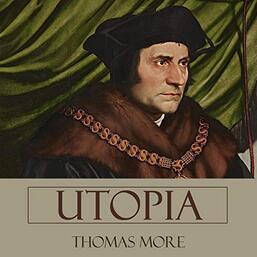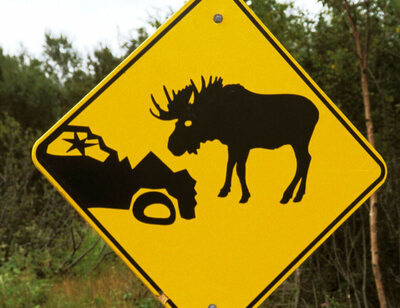David Tickner's Blog, page 19
October 16, 2022
Nature
 The word nature, meaning the restorative powers of the body, bodily processes, and the powers of growth, appears in English in the late 13th century. By the mid-14th century, the word nature also meant the forces or processes of the natural world; that which produces living things and maintains a natural order.
The word nature, meaning the restorative powers of the body, bodily processes, and the powers of growth, appears in English in the late 13th century. By the mid-14th century, the word nature also meant the forces or processes of the natural world; that which produces living things and maintains a natural order.The word nature has its origins in Latin natus (born), Latin nasci (to be born), and the Proto-Indo-European (PIE) root gene (to give birth, to beget). Latin natura (birth; the course of things; natural character, quality; the universe) is the source of Old French nature (nature, being, principle of life; character, essence).
By the late 14th century, the word nature also meant creation and the universe as well as the circumstances or essential qualities of something or the ways in which things are; e.g., human nature.
Such origins suggest that the word nature does not simply refer to things or places, but rather to forces or energies. In other words, rocks, plants, water, animals, air, and so on are the results or manifestations of nature.
However, interestingly, only in the 17th century of the Western world did the word nature come to mean “the material world beyond civilization or society, a wild undomesticated condition,” the so called ‘state of nature’ (Online Etymological Dictionary). Nature was perceived as being ‘out there’ somewhere beyond people. People began to have an us vs them relationship to nature.
Hmmmm… what might the phrase ‘get back to nature’ mean? Get back to the 17th century version of nature; i.e., the sense that people are outside of or isolated from nature? Or, get back to the older idea that people are a part and parcel of nature, the life forces and processes that drive the universe.
Get back to nature? It would seem these days that nature is getting back to us (or at us!). Time to get out the vacuum cleaner!
Reference: Online Etymological Dictionary, https://www.etymonline.com/
Published on October 16, 2022 20:12
October 12, 2022
Viking
 Strangely, some words with a positive origins and meanings can also end up being used with negative intentions; e.g., words like pagan and heretic, fundamentalist, liberal and conservative, woke. Such words are often used these days as blunt instruments to club people with whom you disagree.
Strangely, some words with a positive origins and meanings can also end up being used with negative intentions; e.g., words like pagan and heretic, fundamentalist, liberal and conservative, woke. Such words are often used these days as blunt instruments to club people with whom you disagree.On the other hand, some words start off with a bad reputation and end up with a good one. Viking is one of those words.
In contrast to the old images and stories of pillaging and plundering, we now see the word Viking used in positive ways; e.g., the ‘The Viking Trail’ leading to the Old Norse settlement at L’Anse aux Meadows in northern Newfoundland or the Viking Cruise ships on the Rhine River.
The origins and meanings of the word Viking are somewhat uncertain. The meaning of the word depends on who is telling the story—the Anglo-Saxons or the Old Norse?
The word viking appears to have its origins in words meaning a place; in particular, the Old Norse word vik (creek, inlet, small bay) and the related Old English word wic (village, camp). The Old Norse word vikingr originally may have meant someone who came from a village in a fjord or someone who used the coastal bays and fjords as points from which to ambush passing ships.
Just as today, someone might say, “I am going fishing” or “I am going on a holiday”, the Old Norse term fara i viking meant ‘to go on a viking’; i.e., to go raiding.
In brief, the word viking first referred to a place or an activity before it referred to a group of people.
In the Anglo-Saxon histories, the raiders of what is now England were called tha Deniscan (the Danes). On the other hand, the Danes and others who settled permanently and peacefully in England were identified by the names of their settlements; e.g., notably Jorwic or Jorvik, the city now known as York.
The people who established the temporary camp at L’Anse aux Meadows in Newfoundland were simply Norse, not Vikings; i.e., they were traders rather than raiders or settlers.
The English word viking, meaning a freebooter, sea-rover, or pirate appears only in 1795, from Old Norse vikingr.
Image: https://www.expedia.com/LAnse-Aux-Meadows-National-Historic-Site-LAnse-aux-Meadows.d6089469.Vacation-Attraction
Reference: Online Etymological Dictionary, https://www.etymonline.com/
David’s Wordshop Blog: http://www.davidtickner.ca/blog
www.davidtickner.ca
Published on October 12, 2022 19:13
October 5, 2022
Friend
 Have you given any thought to what it might mean to ‘friend’ someone?
Have you given any thought to what it might mean to ‘friend’ someone?The noun friend has its origins in the Proto-Indo-European root (PIE) pri (to love), PIE priy-ont (loving), and Proto-Germanic frijojands (lover, friend), words that are the source of other words such as Old Norse fraiendi, Dutch vriend, German Freund, and Old English freond (one attached to another by feelings of personal regard and preference).
The verb ‘to friend’ (to be friends) has been used occasionally in English since the 13th century. However, the more commonly used term has been ‘to befriend’ (to join in friendship, to act as a friend). The ‘be’ in befriend indicates to ‘really and truly be a friend’ just as the ‘be’ in belief (from German liebe = to love and PIE leubh = to love) indicates to ‘really and truly love something’.
Facebook’s use of ‘to friend’ is from 2005. I pause now to consider how many of my Facebook friends are ‘really and truly’ friends!
Old English had a number of interesting words related to friends and friendship; e.g., freonsped (an abundance of friends), freondleast (lack of friends), and freondspedig (rich in friends).
Originally, in ancient times, the word friend was the opposite of the word fiend; i.e., friend is from the Germanic verb meaning to love; fiend is from the Germanic verb meaning to hate.
Old English feond (fiend) was an enemy, foe, or adversary from Proto-Germanic fijand (hating, hostile). Over time, feond and fiend came to mean a devil or a diabolical person.
Friend or fiend? What a difference an ‘R’ makes!
Reference: Online Etymological Dictionary, https://www.etymonline.com/
Published on October 05, 2022 10:14
September 29, 2022
Reconciliation
 In Canada, September 30th marks the National Day for Truth and Reconciliation (also known as Orange Shirt Day), a statutory federal holiday established to recognize the legacy of the Canadian Indian residential school system.
In Canada, September 30th marks the National Day for Truth and Reconciliation (also known as Orange Shirt Day), a statutory federal holiday established to recognize the legacy of the Canadian Indian residential school system.Surprisingly, perhaps, the word reconciliation has its origins in the Proto-Indo-European (PIE) root kele, meaning to shout. This seems odd. However, the etymology tells us that the ancient connotation of such shouting is in the context of ‘a calling together’; for example, “Hey people! We need to get together and talk about this…”
PIE kele (to shout, to call) + the Latin prefix com (together, together with) = Latin concilium (a meeting, a gathering of people) and conciliare (to bring together, to unite in feeling, to make friendly).
The verb ‘to reconcile’ (to restore in union and friendship after estrangement or variance) came to English in the mid-14th century from 12th century Old French reconcilier and Latin reconciliare (to bring together again; to regain; to win over again).
The noun reconciliation (renewal of friendship after disagreement; action of reaching accord with an adversary or one estranged) is also from the mid-14th century.
The verb ‘to reconcile’ is also the source of the verb ‘to conciliate’ (to overcome distrust or hostility) which came to English in the 1540s.
Image: https://www.concordia.ca/events/orange-shirt-day.html
Reference: Online Etymological Dictionary, https://www.etymonline.com/
National Centre for Truth and Reconciliation / University of Manitoba
http://www.trc.ca/about-us/trc-findings.html
Published on September 29, 2022 21:02
September 22, 2022
Conversation
 There once was a man so perverse
There once was a man so perverseHe would never stop talking for better or verse
Unlike a worm
That can wriggle and squirm
He didn’t know how to converse.
The words conversation and converse have their origins in Proto-Indo-European (PIE) wer-2 (to bend, to turn), Latin vertere (to turn), and Latin versus (a verse, a turning). PIE wer-2 is also the source of the word worm and the Old English word wyrm (dragon).
In the ancient Latin speaking world, versus meant how the verses in a poem turned in relation to one another. In particular, in the epic poems of antiquity, verses reflected the natural rhythms of the language, indicating where one person stopped talking and another person began, or when one action or description ended and another began. The ways in which a poet or speaker versed (or spoke) the poem helped the listeners to hear and to remember the story.
When two poets or two people talked, they had a comvertere (a turning together, a conversation); from Latin com (together) + vertere (to turn). Sometimes, when people talked or conversed, a person could change their mind about something. A conversation could result in a convertere (a conversion).
In classical Latin, the word conversen also meant to live with, to keep company with; i.e., people’s lives ‘turned around’ each other. Latin conversari meant to dwell. Latin conversationem meant frequent use or abode in a place, and intercourse, as well as conversation.
From these Latin sources came Old French conversation, medieval English conversacioun, and, in the mid-14th century, the English word conversation. At that time, the word conversation could mean the place where one dwelt, or a general course of actions or habits, or a manner of conducting oneself in the world. These uses of the word are now obsolete.
However, traces of these old meanings can be seen in later terms such as ‘criminal conversation’ (a legal term for adultery) from the 18th century. Before that, from at least the 14th century, the word conversation was a synonym for sexual intercourse. (I can see a cartoon. A person is talking with their obviously angry and upset partner. “But we were just talking,” says the person).
The current use of the word conversation to mean an informal interchange of thoughts and sentiments by spoken words is from the 1570s. Etymologically, a conversation is not the same as a dialogue or a discussion. But that’s another story.
Perhaps, when considering the origins of the word conversation, it would seem that a good conversation is one in which each person builds upon what the other has just said. The conversation turns back and forth between (or among) them. It could be said that good conversation begins to have a life of its own. A good conversation is as much about listening as it is about talking. And, let us not forget that talking, real talking, can sometimes be as intimate as touching.
Reference: Online Etymological Dictionary, https://www.etymonline.com/
Published on September 22, 2022 12:21
September 18, 2022
Woke
 Woke, used as a political term, is of African-American origin and is derived from the African-American Vernacular English expression ‘stay woke’, referring to a continuing awareness of social justice and racial issues. The Merriam-Webster Dictionary labels ‘woke’ as “chiefly US slang” and defines it as being aware of and actively attentive to important facts and issues (especially issues of racial and social justice).
Woke, used as a political term, is of African-American origin and is derived from the African-American Vernacular English expression ‘stay woke’, referring to a continuing awareness of social justice and racial issues. The Merriam-Webster Dictionary labels ‘woke’ as “chiefly US slang” and defines it as being aware of and actively attentive to important facts and issues (especially issues of racial and social justice).The words wake and woke have their origins in the Proto-Indo-European (PIE) root weg (to be strong, to be lively).
The use of ‘woke’ as a political term first appears in the US during the 1860 presidential election in support of Abraham Lincoln; in particular, as part of the Wide Awakes movement opposing the spread of slavery.
The term ‘woke’ has been used in the music and theatre of popular culture for over one hundred years; for example, in his 1938 song, Scottsboro Boys, Lead Belly advises people “to be a little careful when they go along through there, stay woke, keep their eyes open.”
By the late 2010s, ‘woke’ was being used as a more generic term “broadly associated with left-wing politics, socially liberal causes, feminism, LGBTQ activism and [other] cultural issues…its widespread use since 2014 is a result of the Black Lives Matter movement” (Wikipedia).
Paradoxically, the word ‘woke’ has also come to connote the opposite of what it means. Today it is often used as an insult or as a stick with which to beat people who aspire to such values, often by people who themselves do not aspire to such values.
Online Etymological Dictionary: https://www.etymonline.com/
https://www.merriam-webster.com/dictionary/woke
https://en.wikipedia.org/wiki/Woke
Published on September 18, 2022 13:39
September 12, 2022
Teacher
 The word teach has interesting, even surprising, origins. Teach is related to words such as toe and finger, diction and dictate. And digital. When you stop and think about it, the original teachers must have taught by pointing with their fingers or by making things with their hands and fingers.
The word teach has interesting, even surprising, origins. Teach is related to words such as toe and finger, diction and dictate. And digital. When you stop and think about it, the original teachers must have taught by pointing with their fingers or by making things with their hands and fingers.The verb ‘to teach’ has its origins in the PIE root deik (to point out, to show, to demonstrate), Proto-Germanic taikijan (to show), and Old English taecan (to show, to point out, to declare, to demonstrate; also, to give instruction, train, assign, direct; warn; persuade).
Old English taecan is related to Old English tacen (sign, symbol, evidence), the origin of the word token, perhaps indicating that to give instruction is to embody or to be a sign of what is being taught; i.e., do what I do, walk where I walk (follow in my footsteps).
Interestingly, the Old English verb for ‘to teach, to instruct, to guide’ was not taecan but laeran, the source of the words learn and lore, perhaps indicating that a teacher is someone who is both a learner and a source of learning. Similarly, Sara Davidson states, “The Haida word for ‘teach’ is sk’ad’ada and the base of the word ‘teach’ is sk’ada, which means ‘learn’. The connection between these two words reflects my own understanding of teaching—that it is impossible to teach without learning” (Davidson, 2018, 13).
Early in the 13th century, the word teacher meant an index finger. However, by the early 14th century a teacher was someone who teaches.
The noun teaching (the act of teaching) came to English in the early 14th century from Old English tecunge (meaning both that which is taught and the act of teaching). The word tecunge suggests that the teacher, as a ‘token’, embodies both ‘what’ is taught and ‘how’ something is taught.
The word ‘teachable’ meaning capable of being taught is from the late 15th century and meaning the subjects to be taught is from the 1660s. The phrase ‘teachable moment’, from 1917, was revived in the early 1950s by Robert Havighurst and commonly used by the 1960s. Such moments are also considered as ‘learning moments’ or ‘learning instants’.
On another note, the ancient Chinese ceremony for the initiation of new teachers was known as the Tea Ching.
Reference: Online Etymological Dictionary, https://www.etymonline.com/
Davidson, S.F. & Davidson, R. (2018). Potlatch as pedagogy: Learning through ceremony. Winnipeg: Portage & Main Press, 13.
Published on September 12, 2022 09:41
September 9, 2022
Napkin, Serviette
 Napkin
NapkinHave you ever unfolded a map on a table to check out the route you are planning for travel?
The word napkin has its origins in Latin mappa (map; a cloth on which maps were drawn) + Middle English kin (little); i.e., a napkin is a little map. Latin mappa is the source of Old French nape (tablecloth, cloth cover, towel). The Old French word naperon (napkin) is the source of the English word apron.
By the late 14th century, the word napkin came to English from Old French meaning a small square of cloth used to wipe the lips and hands and to protect one’s clothing while eating at the table. A nape + kin was literally a little tablecloth; i.e., don’t wipe your greasy fingers on the big tablecloth!
Napkin-ring is from the 1680s. The British word nappy, meaning a baby’s cloth diaper, is from 1927.
Serviette
The word serviette, meaning a table napkin, came to English in the late 15th century from Old French serviette (napkin, towel), a word of obscure origin, perhaps from servir (to serve). The English word serviette was originally used in Scotland and only became commonly used in England in the early 19th century.
Napkin or Serviette?
In the UK, napkin was originally an upper-class term and serviette lower-class. Today, however, napkin is the most commonly used word. In the US, the word serviette is rarely used; napkin is the commonly used word. Canadians use both words--we get to chose whichever one we would like to use. When I was growing up in Saskatchewan, cloth napkins were put on the table when company was coming. Paper serviettes were for everyday use.
Reference: Online Etymological Dictionary, https://www.etymonline.com/
https://www.differencebetween.com/difference-between-napkin-and-serviette/
Published on September 09, 2022 19:27
September 6, 2022
Utopia
 Someone asked me about the origin of the word utopia. Here it is!
Someone asked me about the origin of the word utopia. Here it is!The word was coined in 1516 by Sir Thomas More as the title of his book about an imaginary island enjoying utmost perfection in its legal, social, and political systems.
The Latin word utopia, created by More, means ‘nowhere’ or ‘no place’, perhaps implying that such perfect places do not exist anywhere except in the imagination. He differentiated the word utopia from eutopia (a good place). Today, however, the word utopia commonly means a good or perfect place rather than ‘no place’—eutopia became utopia.
More created the word utopia from Greek ou (not) + topos (place; e.g., topography); i.e., no place. Since the 1960s, linguists have puzzled over these origins as Greek ou derives from the Proto-Indo-European (PIE) root aiw (vital force, life, long life, eternity). Rather than ‘no place’, a modern translation of utopia might be ‘a place of long life’ but without any connotations of perfection.
Linguists also caution against confusing the Greek prefix ou (not) with the Greek prefix eu (good) which forms words such as eulogy (good words), euthanasia (good death), euphemism (good speech), and others.
In any case, since the 1610s, the word utopia has come to mean any perfect place. In contrast, the word dystopia was coined in 1844 meaning an imagined world or society in which people lead wretched, dehumanized, and fearful lives. The word dystopia came into common use in the 1950s to describe some of the science fiction of the time; e.g., George Orwell’s 1984.
Sir Thomas More was an English lawyer, judge, social philosopher, author, statesman, and a noted Renaissance humanist. He served Henry VIII as Lord High Chancellor of England. He was executed for treason because of his opposition to issues surrounding Henry VIII’s marriage to Anne Boleyn. The 1966 movie of his life, A Man For All Seasons, won the Academy Award for Best Picture of the Year. I still remember the last scene in the movie: just as the executioner’s ax swung up and came down, the movie screen went dark and silent.
Reference: Online Etymological Dictionary, https://www.etymonline.com/
https://en.wikipedia.org/wiki/Utopia
Published on September 06, 2022 21:31
August 31, 2022
Moose
 A visitor to Newfoundland might easily be led to believe that the moose is the provincial animal.
A visitor to Newfoundland might easily be led to believe that the moose is the provincial animal.During our recent visit to Newfoundland, my wife and I could not help but notice that the gift shops are full of moose-related souvenirs. We saw a moose moosaic in a mooseum. Some towns advertise amoosement parks and live moosic concerts. We found these quite amoosing.
All this seemed in curious contrast to all the highway signs constantly reminding drivers to be on the lookout for moose on the roads. Some signs indicated how many road accidents involving collisions with moose have occurred over the last couple of years. We saw a number of moose grazing along the roadsides as we drove. Make no moostake—they are there and I don’t mean mooschief!
Moose are not a native species. Four moose were imported to Newfoundland in 1904. There are now thousands across the province, eating so much that they are creating ‘moose meadows’ in the middle of forests.
The word moose came to English in 1606 from an Algonquian language, likely Narragansett or Abenaki moz from moosu (he strips off; i.e., the stripping of tree bark for winter food). The Penobscot word muns, Ojibwa mooz, and Delaware /mo:s/ also mean moose. The Proto-Algonquian form was mo·swa.
The animals which officially symbolize Newfoundland and Labrador are the Labrador Retriever, the Newfoundland dog, and the Newfoundland pony.
The cariboo, an animal native to Newfoundland, is also an important symbol. The cariboo can be found on the cap badge of the Royal Newfoundland Regiment which was almost annihilated on 1 July 1916 at Beaumont-Hamel during the Battle of the Somme. Of the 780 men who went forward that morning only about 110 survived unscathed, of whom only 68 were available for roll call the following day. The Beaumont-Hamel Newfoundland Memorial in France is marked by a massive sculpture of a cariboo.
Reference: Online Etymological Dictionary, https://www.etymonline.com/
Published on August 31, 2022 21:36



